#and has seen no other action movie classics
Explore tagged Tumblr posts
Text
"it's not hot fuzz but at least it's in the trilogy"
Silly me forgot most people probably aren't familiar with what they are referencing! It's the three (very British) Edgar Wright/Simon Pegg/Nick Frost films known as "The Cornetto Triology", which is (drum roll please) the source of "You aint's seen Bad Boys 2?" line. They are all masterful "fast-paced and kinetic, satirical genre films" classic genres like "Zombies" and "Cops + somthing weird in small english town". (You might know Edgar Wright as writer/director of Scott Pilgrim vs. the World)
The first film, "Shaun of the Dead", involves "going to the Winchester (pub) to wait for it all to blow over" (yt) (where it = zombie apocalpyse).
The final film is called "The World's End" and involves... I'll just say it involve a pub named "World's End". (partly because I only sorta remember the plot)
And "Hot Fuzz" is actually fantastic shipping material (318 words on ao3). It's cops but it's thoughtful parody of American cop movies that explicitly includes the "and the partners are obviously in love with each other" trope. Clips: Silly small town cop boy is shocked painfully serious big city cop has never seen his favorite action movies, especially Bad Boy 2. (yt) The film is also the source of the phrase "judge, jury and executioner" being mangled into "Judge Judy and Executioner" (yt). Note: This clip spoils the entire movie mystery, is all shouting
Anyway, I agree with Joel (the movie fiend) that "The World's End" is in fact the worst of the trilogy, though it's all of a 4 point spread on rotten tomatoes. Hot Fuzz is my favorite, I even showed it to some people after Limited Life to explain what was going on - and I'd forgotten how gay it was!


Happy Valentine's Day!
118 notes
·
View notes
Text
a bunch of normal people getting jumanji'd/isekai'd into an action movie where they get to live out their 80s ultraviolence fantasies is SUCH a good set-up im so excited
also the story board animations showing off what happens?? what the hell. i love it. i hope it's part of the show and not just for the trailer
#dimension 20#never stop blowing up#the fact that they seem to get sucked in by playing the tape#makes me think jumanji but them getting new bodies is more isekai lol#well in terms of original jumanji. in that new one they got new bodies too#anyway as someone who only watched predator for a class#and has seen no other action movie classics#i am wildly invested in whatever the hell will happen#also its like. guarenteed this'll be kids on bikes right?
32 notes
·
View notes
Note
OOO! Toby, EJ, and LJ favorite horror movies! Just like headcanons I guess , if you have the time! Thank you for reading!
TICCI TOBY
He watches hillbilly type slasher films. Anything that resembles Texas Chainsaw Massacre, he fucking loves it. I think Toby would be the type to also just go to a video rental store and pick out some random obscure VHS movies and see if he can find some fucked up home video shit. He doesn't get scared or anything, he mostly watches for the entertainment value.
He likes gorey and action-oriented films, not really into psychological thrillers. He also refuses to watch Paranormal Activity. Cuz he watched the movies when he was young and it freaked him the fuck out to the point he just doesnt wont watch them again incase they scare him still LMAO His ego would be hurt.
EYELESS JACK
EJ watches shit like Saw 100%. Silent Hill, Final Destination, really anything that he would've seen before he turned into what he is now. Something about it just feels comforting in a way. He likes religious horror too, and psychological horror cuz hes a fucking geek. And any crime thriller that has a sort of philosophy to it. Seven, Memento, Murder By Numbers, Shutter Island, etc
Hes not a big fan of classic slasher films or paranormal horror, it feels a bit cheap to him, but he can appreciate the Halloween movies.
LAUGHING JACK
Those really shitty old clown movies. Not even It or Terrifier or anything. He likes shit like Killer Klowns From Outer Space and Funland and Killjoy And he genuinely enjoys them. Thats the horror.
He finds all the other horror movies to be boring, maybe inspiring at best, he really doesnt like hororr movies where the main characters win at the end, but theres a certain joy to those low budget obscure clown horror movies from the 60s-80s that he fucking loves. He watches on VHS exclusively
#tombtalk#creepypasta#ticci toby#eyeless jack#laughing jack#creepypasta headcanons#ticci toby headcanons#eyeless jack headcanons#laughing jack headcanons#creepypasta ticci toby#creepypasta eyeless jack#creepypasta laughing jack
215 notes
·
View notes
Text
sharing this review of loch and xz’s performance that’s trending on weibo right now 🫶🏼


After watching "The Legend of the Condor Heroes: The Gallants", I want to write more about actor Xiao Zhan. I like actors like Xiao Zhan. Because he represents not only the freshness of the film industry, but also an actor who can provide the film market with possibilities and industry imagination.
Outside the movie, we have seen Xiao Zhan's influence in the past few days. It is entirely possible for him to rely on his own influence to give a movie infinite possibilities. It is a record-breaking pre-sale result. "The Legend of the Condor Heroes: The Gallants" broke the fastest record of breaking 100 million in pre-sales during the Spring Festival in Chinese film history in 24 hours. This record also successfully brought the Spring Festival market and the attention of the whole people. Before the movie was released, the cumulative pre-sales of "The Legend of the Condor Heroes: The Gallants" exceeded 330 million, and it also ranked among the top five pre-sale box office charts in Chinese film history.
Such a result is a perfect start for a martial arts film like "The Legend of the Condor Heroes: The Gallants" that does not have an advantage in scheduling and media predictions at the beginning of the Spring Festival! While demonstrating Xiao Zhan's appeal, the results also successfully helped the film industry increase the popularity and attention of the Spring Festival. At the same time, we can see that Xiao Zhan's influence spans multiple age groups, which also means that he has attracted more people of different ages, from teenagers to middle-aged and elderly groups, and such non-movie market main audience groups to enter the cinema!
Of course, for Xiao Zhan, what is more important is that the movie can give the movie "The Legend of the Condor Heroes: The Gallants" itself, and give a fresh charm to the role of Guo Jing. In a martial arts film, Xiao Zhan showed a full range of acting abilities. In the process of interpreting the well-known classic role of Guo Jing, we saw his professionalism and dedication as an actor, and also his acting was effortless and natural. In a martial arts film, Xiao Zhan must have faced many challenges, including Mongolian, horseback archery and physical training. But what is presented to the audience is Guo Jing who is completely familiar with the game. He speaks Mongolian without any sense of disobedience, and he is not unfamiliar with riding and shooting. The degree of completion of the action takes into account the elegance and smoothness that martial arts should have, which allows people to instantly bring into the role.
In addition, it is Xiao Zhan's switching of details in the performance that makes the audience's emotions more full. For example, when his mother died in his arms, Xiao Zhan's emotional changes were full of brokenness and empathy, and were particularly detailed. For example, when he finally met Huang Rong, he rode in the rain. The romance and freehand, expectations and enthusiasm were all written into his eyes, and into his tender yearning for riding a horse and whipping a whip.
So I really admire actor Xiao Zhan, because he not only dares, but also goes all out to do it. It is amazing to dare to try and challenge the classic image of Guo Jing, because such a role, if it does not meet the imagination of others, it is easy to fall into the wave of public criticism. But he did not give up. Instead, he used his efforts, dedication, and understanding and grasp of the role to present a Guo Jing that satisfied the director and convinced the audience. He is a clumsy Guo Jing who is full of innocence and kindness. He is also a Guo Jing who sticks to his patriotic sentiments for the country and the people, and shows the core of a great hero.
87 notes
·
View notes
Text
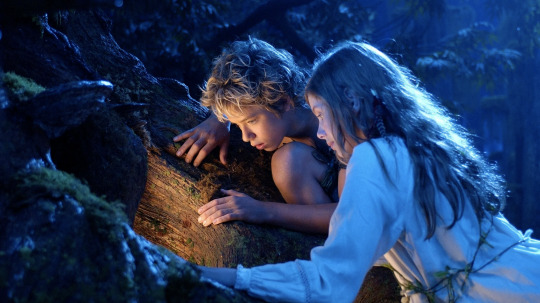
P.J.Hogan's 'Peter Pan' is still an underrated masterpiece 20 years later
Peter Pan is a live-action fantasy adventure film directed by P. J. Hogan that reimagines the classic story of Peter and Wendy. The screenplay was written by P. J. Hogan and Michael Goldenberg and was released in cinemas in December 2003. The screenplay is based on the 1904 play Peter Pan, or The Boy Who Wouldn’t Grow Upand the classic novel Peter Pan by J.M.Barrie, which was originally published under the title Peter and Wendy.
The film tells the story of a young Edwardian girl, Wendy Darling (Rachel Hurd-Wood) and her two younger brothers John and Michael. On the night she is told she must grow up, a wild, fairy-like boy called Peter Pan (Jeremy Sumpter) flies into her room with his high-maintenance fairy Tinkerbell. When he learns that she tells stories, he whisks Wendy and her two brothers away to a magical Island called Neverland — where you supposedly don’t “grow up” — so that she can mother his henchmen, the Lost Boys. There she fights pirates led by the evil Captain Hook (Jason Isaacs), meets mermaids, dances with fairies, falls in love and grows up.

I have strong family connections tied to Peter and Wendy and J.M.Barrie. My great, great uncle Nico was one of the sons of Sylvia Llewelyn Davies'. He and his other brothers "the Lost Boys" were adopted by J.M.Barrie; which ultimately inspired him to write Peter Pan. Nico’s daughter Laura — my cousin — who I met for the first time a few years ago, told me that she was flown to Australia for the filming of P.J. Hogan’s Peter Pan because she was J.M.Barrie’s goddaughter. She told me that she was thrilled with the cast, especially Jason Isaacs, who played Captain Hook and Mr Darling. She also mentioned that Jeremy Sumpter, who played Peter Pan, was a lovely boy. However, she said she was very surprised and sad that the film wasn’t a big success as she really liked what they did with the story. I have loved the fairytale of Peter Pan from a young age, and learning that I am literally part of the family that inspired the story was very exciting and I’ve only begun to internalise it more as I’ve grown older.
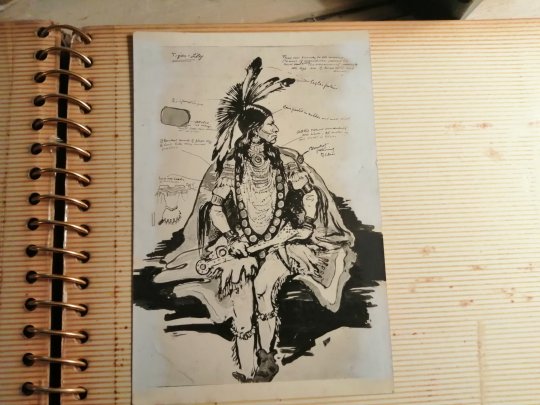
When I was in my mid-twenties, I was diagnosed with a high level of Autism. One of my main symptoms was labelled “ageless”, which in simple terms means that one half of me is still a child that I can’t mentally leave behind. I can’t do many things that most adults can do, such as pay bills, drive a car, look after my own well being etc. I flap my hands when I get excited. I bounce. I sometimes speak in a baby voice. I overcommit to things I enjoy. I admit that it was hard to come to terms with the diagnosis when I first received it. But over time, I’ve come to believe that the two can coexist in a healthy way. I believe that I am an adult who is able to develop and grow while still carrying the child within me, and that this is not seen as a bad thing. I think Peter and Wendy can be seen as a reflection of that.

I was first introduced to P.J. Hogan’s Peter Pan a few years after it was released (I was maybe nine or ten years old), and I absolutely loved it. It wasn’t only one of my favourite film adaptations, but one of my favourite movies of all time. What surprised me most about the film at that age was how dark and gruesome it was, and full of this underlying sexual tension that I hadn’t expected at all from Peter Pan. Even today, this film still has a special place in my heart. It is made with so much passion and love for the original text that I can automatically put myself back into the story. After watching the film again as an adult, I almost immediately opened my copy of Peter and Wendy and started reading. I would even go so far as to say that I prefer the film to the book. However, part of me wishes that the age rating had been set much higher, as the dark and gruesome moments were some of the strongest parts of the film adaptation. This is possibly why some critics and viewers had difficulty categorising the film at the time.
However, I often consider P.J.Hogan’s Peter Pan to be the same equivalent as Joe Wright’s Pride and Prejudice. (which came out a few years later in 2005, starring Keira Knightley and Matthew Macfadyen). The film moves at the same dreamlike pace. It is light, dark, colourful and deeply romantic.

I also often prefer P.J.Hogan’s Peter Pan to the 1953 Disney Animation of the same name, even though it’s the version I grew up with and liked. I find it much less straightforward and innocent. Also, the 2003 film is much closer to the original source material, which I loved reading as a teenager, and to J.M.Barrie’s original vision. The film manages to reflect the same intellectual subtext and depth of the novel while retaining the whimsy and magic.
Magical Realism

Peter Pan was a perfect blend of fantasy and realism. A lot of media these days focus too much on “realism” and make their sets and CGI look bland and washed out. It’s a common myth these days that no one likes whimsy anymore; it’s somehow seen as too childish. As a result, much of the magic of fantasy is lost. But in this Peter Pan, a lot of colour was used in the set design and cinematography. Everything was so brightly and colourfully lit. Most fantasy films these days, including the new live-action adaptation of Peter Pan and Wendy on Disney+, are all so gloomy and dark. You almost have to light up the screen to make out the actors’ facial expressions or what’s happening in the scene. But this film understands that a viewer who watches fantasy wants to be swept away, but also wants a certain amount of believability. Although the film contained a good amount of darkness, it did not shy away from being cartoonish either (which I think was partly inspired by the Disney animation), i.e. characters blushing or bouncing on the clouds.
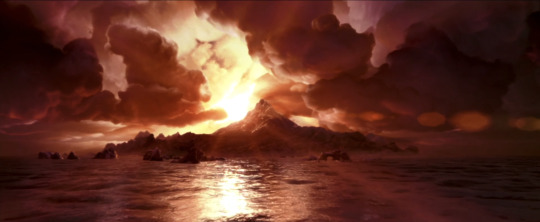
The design of Neverland was breathtaking. I think the CGI, although criticised by some, made the island and creatures look more dreamy and fairytale-like. It was a good combination of CGI for the landscapes and real backdrops for the jungle, so there was enough magic and believability to transport the viewer into the story. A bright colour palette was used for the landscapes, while down-to-earth colours such as browns and greens were used on the ground, such as in “The Lost Boys Hide” under the tree, to give a sense of realism. The costume department also reflected this, from the majestic reds and blacks of the pirates, to the earthly colours of blue and red for the Native Americans, to the natural greens and browns of the Lost boys. I noticed that the colours in Neverland were used as a contrast to the Edwardian London back home, which is realistic but dull compared to the island.
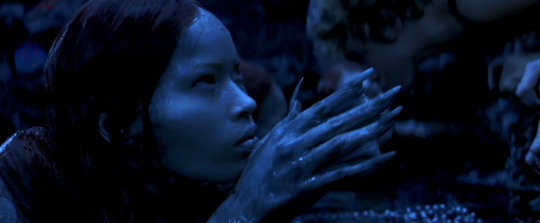
One aspect I liked was that the lighting on Neverland always changed depending on the mood of the scene- unlike the naturalistic lighting on Earth. It was almost as if the island was a living being. For example, when there was a fight on the ship, the lighting was red. When Peter took Wendy to the mermaids, who were scary and frightening, the lighting was dark and blue. This created a surrealistic atmosphere, almost like a fever dream or a kind of nightmare.
Sometimes the environment changed depending on Peter Pan’s mood in the respective scene. I particularly liked how Peter Pan influenced the weather on Neverland. Just his mere presence when he flew to the island changed the entire atmosphere in an instant. His feelings also determined whether it was summer or winter. In other words, its suggested in the film that the longer he has been there, the more the island has become a part of him, so that he can no longer leave it. It’s almost as if the island has transformed him into a magical being.
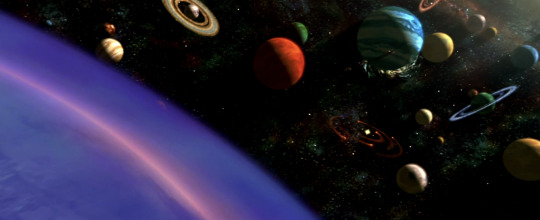
The exuberant musical score by James Newton Howard: I’ll never forget that. I think that was one of the first movies I saw where I actively noticed the music because it was so brilliant. Even today, the “Flying” soundtrack still gives me goosebumps. It perfectly encapsulates the whimsy, joy and imagination of Peter and Wendy. I loved that there were always different variations. One of my favourite pieces from the movie is ‘Fairy Dance’, which starts off cheerfully and moves up and down depending on the characters’ conflict/what they’re saying in the scene.
Cast
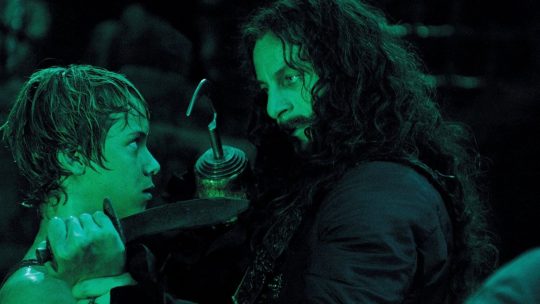
The cast of this film adaptation was magnificent. The look of all the actors not only matched the book description, but also the mood, especially with the Darling family. One of the standouts was Olivia Williams as Mrs Darling. She captured the gentleness of the character perfectly. I also loved the new addition of Aunt Millicent, played by Lynn Redgrave. She fitted into the story so well that I was surprised not to find her in the novel. She had the perfect amount of ridiculousness and hilarity that suited J.M.Barrie’s style.
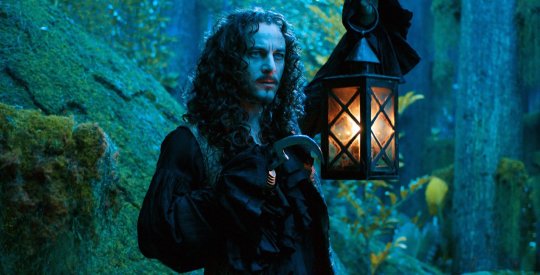
One particular member of the cast we can probably all agree on that was perfect, was Jason Isaacs, who played both Wendy’s father Mr Darling and Captain Hook. He was certainly a star in this film for sure. I just can not think of anyone who could play him better, especially in a live-action film adaptation. He was particularly good in the role of Captain Hook. When I first saw the film as a child, I did not know that Captain Hook and Mr Darling were played by the same person until my dad pointed it out to me because he was so good. I loved how they portrayed Wendy’s dad as shy and reserved, as opposed to Captain Hook who was flamboyant and sinister. Mirror versions of each other in different realities — that’s a common theme throughout the film. As Captain Hook, Jason Isaacs perfectly captured the essence of viciousness, deviousness and brutality that was necessary for the character. But also the deep loneliness and frustration behind it all. I have seen a quote that was supposedly cut from the film (and never should have been) that provides so much context for his hatred of Peter Pan:
“Imagine a lion in a cage and into that cage flies a butterfly. If the lion was free, it would pay no heed to such creature. But the lion is not free…and so the butterfly drives him slowly insane.” — Captain Hook
They did a really good job of showing how Peter Pan and Captain Hook are mirror images of each other. Peter Pan is a child who secretly wants to be an adult, while Captain Hook is an adult who secretly wants to be a child. Both fight each other for different reasons, but the goal is the same. For example, there is a great scene towards the end where Captain Hook uses his wits to defeat Peter in a fight. Here it becomes clear that there is deep symbolism for the inevitability of adulthood and the loss of childhood. Jason Isaacs really showed off his acting talent here. I liked that he wasn’t portrayed as a “dumb villain”, which he easily could have been.
There were also some great performances among the adults. Most notable was Richard Briers as the ‘pirate’’ Smee. But the child actors, especially the lost boys, really held the movie together. Their solid performances made it so believable that the island was ruled by children. I loved Theodore Chester as Slightly. He was very charming and funny in that role.
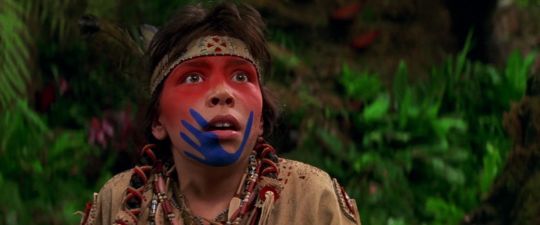
Another member of the cast I thought was brilliant was Carsen Grey, an indigenous actress of Haida descent, who played Princess Tiger Lily. I liked that they let her speak her ancestral language, Mohican, in this film. Although this film came out in the early 2000s, it is the only version of Peter and Wendy in which Native Americans are neither erased nor white-washed even though the representation is far from great. Considering how they’re treated in the novel, it’s perhaps for the best overall that they limited some of their scenes. However, I liked how firey she was in this adaptation and not the damsel in distress she was portrayed as in the Disney animation. I think it was a wise decision to cut the infatuation she had with Peter Pan, as it was really just one line in the book that would have added unnecessary drama, and all in all, it would have fallen short if all the female characters were jealous of each other.
They also downplayed Tinkerbell’s jealousy in this regard, portraying it more as her trying to protect Peter Pan’s youth from romantic advances, as hinted at in the novel, and also being sad that Wendy is attracting all of Peter Pan’s attention. Ludivine Sagnier has, in my opinion, succeeded well in making Tinkerbell equally repulsive and endearing, as befits the character.
Wendy Darling
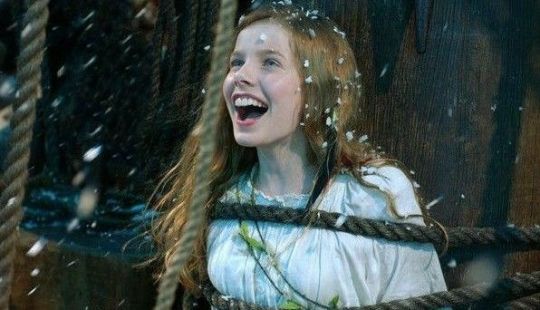
Rachel Hurd-Wood was the perfect cast for the role of Wendy Darling.I was actually surprised to learn that this was her first film role ever, because she was a natural. She effortlessly possessed the same caring nature and charm that makes Wendy so endearing. She is exactly how I imagine the character when I read the story. When people talk about Peter and Wendy, they always mention Tinkerbell, Pan or Hook, but personally I am always drawn to Wendy. She is the real heroine of the story. After all, she was the main reason for Peter to bring her and her brothers to Neverland.
What always amazes me about Wendy’s role in the story is the fact that Wendy literally doesn’t spend much time being a “child” in the time she spends in Neverland. When she’s not escaping death at the hands of mermaids or pirates, she acts as a mother to the ‘lost boys’ and her brothers. She asks herself what she really wants from life. In comparison, she was allowed to behave more like a child at home in Edwardian London. Neverland is not a place where you never grow up. It’s the place where she chooses to grow up. Many people have described Neverland as a manifestation of Wendy’s subconscious as a result of trauma, and I’ve never found that to be more true in this adaptation.
One of the reasons why I think P.J. Hogan’s Peter Pan is the best adaptation of the novel is the fact that the film revolves around Wendy’s coming of age. I loved that they expanded on her love of storytelling and also gave her a tomboyish streak. Instead of just being on the sidelines, she’s able to get involved and fight pirates while retaining many of her feminine traits such as her maternal instincts and romantic feelings for Peter. She makes mistakes and sometimes gets dragged into things she knows she shouldn’t do. But in the end, she triumphs.
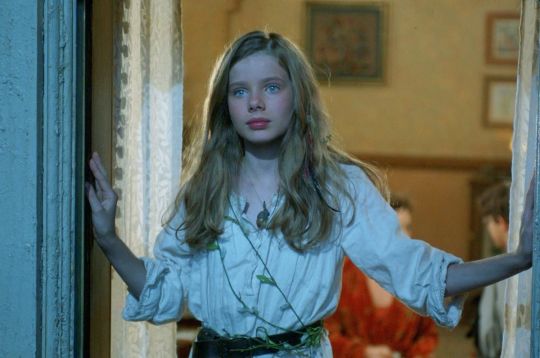
In many film adaptations of Peter and Wendy that I have seen, Wendy is either only present in passing or not at all. Characters like Peter Pan, Captain Hook and Tinkerbell always take centre stage, which I think is a strange decision as they are part of Wendy’s story and not the other way around. Peter Pan is meant to metaphorically represent the childhood she does not want to give up (which is why the character is always played by a woman in the original play, as he is a mirror image of Wendy). And Captain Hook (J.M.Barrie also wanted him to be played by the same actor as Mr Darling) represents the dark side of her father, or rather what she imagines adulthood to be. This is particularly emphasised in this film adaptation because he is an important factor in her being told to grow up. The father, the concept of adulthood, and Peter Pan, her childhood, are at constant war with each other.
“You’re not supposed to be like Peter, who kept every good and bad aspect of being a child and can’t tell right from wrong. You’re not supposed to be Hook, either. He let go of everything childish and loving about him and became bitter and evil..You’re supposed to fall in the middle, to hold onto the things about childhood that make it beautiful — the wonder, the imagination, the innocence — while still growing up and learning morality and responsibility. You’re not supposed to be Hook. You’re not supposed to be Peter Pan. You’re supposed to be Wendy Darling.” — @maybe-this-time
The 2023 film Peter Pan and Wendy took a different approach, by making Wendy a kind of powerhouse who always saved the day and outshone Peter Pan overall. In my opinion, the 2003 film adaptation emphasised very well that Wendy really is the yin and yang. She's allowed to be romantic, be rescued by others and at the same time determine her own destiny and stand up for herself. Because that’s what her journey in the adaptation is all about. She is pressured by all the adults in her life to grow up. She allows herself to be seduced with the prospect of an eternal childhood by Peter Pan. Then she realises that it is not self-fulfilling. She is tempted by Captain Hook with the concept of adulthood. And finally, she finds a balance between these two extremes on her own terms. By the end of the film, Wendy has made her peace with growing up while still remaining a child at heart. That requires a certain mental strength that we should all strive for.
Peter Pan and Wendy Darling
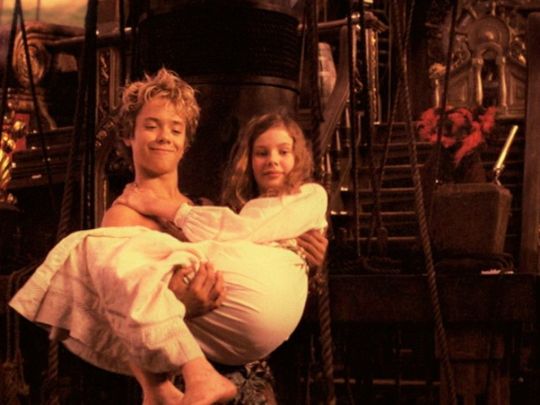
In most adaptations of Peter and Wendy, such as Hook and Syfy’s Neverland, the focus is on the title character Peter. In the more recent film adaptation Peter Pan and Wendy, the focus is on Wendy. This film adaptation of Peter and Wendy, on the other hand, sticks more closely to the original source material, as the story focuses on Peter and Wendy’s relationship. This is perhaps the reason why I always hesitate when I watch other adaptations, because these two characters are supposed to go together. It’s definitely a relationship that can be portrayed in all sorts of ways because they are symbolically the same person.
Although there is no romance between Peter and Wendy in either the original novel or the play, Wendy quickly develops romantic feelings for Peter which, as a prepubescent child, he does not consciously reciprocate as he has no concept of love other than that of a mother’s. Although Peter cares deeply for her, he ultimately only longs for her to be the maternal figure that is missing in his life. One could go into the symbolism that Peter and Wendy are one and the same, and that this is an expression of Wendy learning to love herself. But in a literal sense, J.M.Barrie had unintentionally created this very strong potential between the two characters. And I personally feel if your'e going to make an adaptation of Peter and Wendy that potential needs to be explored in some way, even if it’s not necessarily romantic.
Hogan recognised this potential and developed the romantic elements, e.g. ‘the “thimble” from the novel, into a very real and tangible plot. In other adaptations, Peter and Wendy’s relationship is rather one-sided. But in P.J. Hogan’s film adaptation, however, it is not at all. Over the course of the film, Peter and Wendy fall deeply in love with each other.
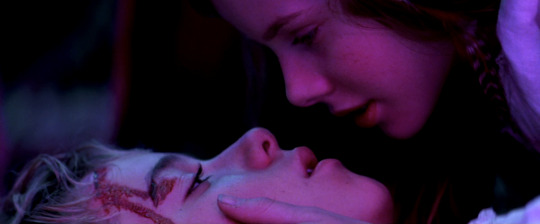
Rachel Hurd-Wood and Jeremy Sumpter had a remarkable on-screen chemistry for young actors, which helped give the adaptation its own identity. Whenever they interacted on screen as Peter and Wendy, it was — like the glittering pixie dust of Tinkerbell — simply magical. The off-screen chemistry between the two definitely helped make the romance so believable as well. When I was younger, I didn’t like romantic subplots in family films. I personally found that they clogged up the main plot because the “romance” tended to be very one-dimensional- but Peter and Wendy in the 2003 film version were simply enchanting.
In the original novel, J.M.Barrie alludes to the possibility of a romance between the two. In the film adaptation, they go all out. Their love story was written so beautifully and profoundly, while staying true to the original text and J.M.Barrie’s themes. This made the conflict hinted at in the novel of “staying in Neverland with Peter or growing up on Earth with Wendy” even more poignant and relevant, because in reality there was only ever one option. They couldn’t find a way to have both. That made the ending even more “heartbreaking” for me as a child, because even though they had the chance to be happy together, she couldn’t give up on growing up to stay. And he couldn’t give up being a child to leave, even though it was a natural progression for him.
Peter Pan
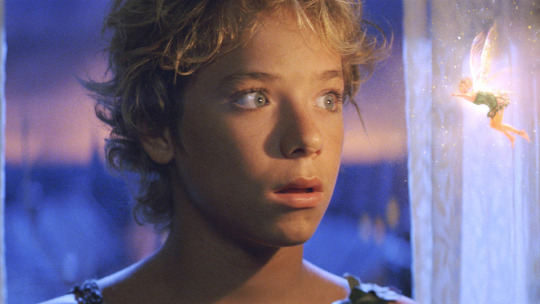
Jeremy Sumpter delivered a fantastic performance as Peter Pan. Not only did he perfectly match the illustrations, but he also managed to perfectly capture the essence of the charismatic, mischievous little boy from the novel. What’s more, of all the versions I have seen so far, he is by far the most accurate, right down to the clothes made of skeleton leaves, the dirty fingernails, the feral mannerisms, the traumatised soul behind the charm and the downright creepy insinuations. By today’s standards, you could almost take Peter Pan for a grown man who consciously decides not to behave like this.
However, when I watch the film again as an adult, I can now understand why he has reservations about growing up in Edwardian England and would rather remain a “child” in Neverland forever. As Peter says in the film, “Would they send me to school? And then to an office?” I feel like most of us today have so many choices as we get older, but back then it was much more limited. The choices were very restricted in that “heterosexist” environment. You could only be a certain thing, and it was much harder to hold on to the pleasures of life. I can now also understand the initial reactions of Michael and John to Peter: He must have seemed scandalous to people at the time. His bright colours, his inappropriate clothing and his behaviour are repulsive to the boys, but Wendy is immediately fascinated and attracted. I think it was a deliberate choice that he is the only character with an American accent to set him apart from the rest of the cast; to emphasise the wildness of the character and his non-conformity to the people of Edwardian London.
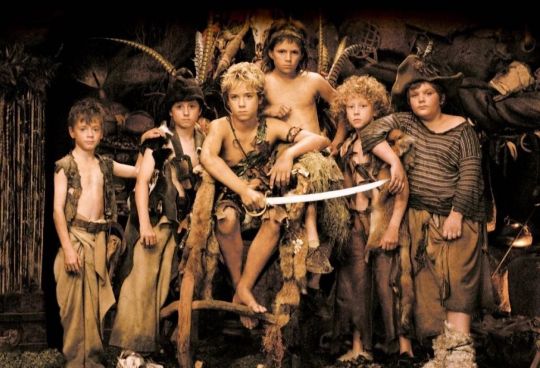
Another small aspect I liked was the suggestion that the Lost Boys, although they lived with Peter and obeyed his commands, lived in constant fear of him and did not worship him as in other adaptations. (A fear that is justified as Peter tries to kill them more than once in the film). What the 2003 film adaptation captured perfectly about Peter's character was: how terrible of a person he really is. Peter Pan is a hero when he goes on adventures and fights pirates. You could argue — via the quote “Leave Hook to me” (which Peter says to her in the film) — that Peter is Wendy’s split self who can fight her father (Captain Hook) for her, just like antibodies do with germs when we can’t handle them ourselves.
However, when it comes to understanding emotions, caring about others, even his henchmen, the Lost Boys, and doing anything that inconveniences him, Peter Pan is possibly as bad as Captain Hook. This makes Wendy’s decision to leave him all the more powerful. Although she was initially seduced by his adventurous life, she soon realises that his “life” of joy and adventure is not fulfilling at all. Because in reality, there is no real joy. There is no real adventure. In reality, his life is empty because it is not earned. In addition, she realises that she is gradually losing her memory of the outside world, including her parents - a sign that she is “slowly awakening from the dream”. This leads Wendy to realise that she wants more than what he can give her in Neverland (e.g. romantic love) and decides to leave. Being alive means feeling, accepting and growing. However, as long as Peter remains a boy, he can never truly be alive. Peter Pan conveyed this important message, whereas earlier film adaptations, including the Disney animation, did not.
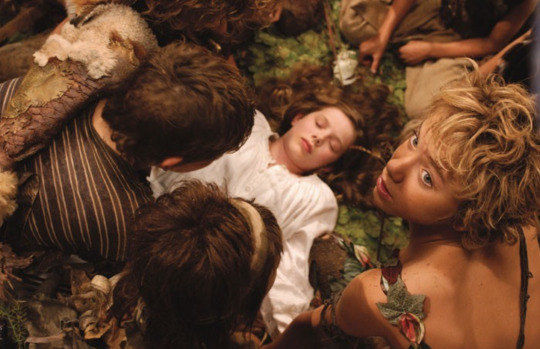
One of the reasons why good adaptations of Peter and Wendy are so hard to come by, especially in this day and age, is not only because they adapt a performative story that exists in layers of subtext. They also work with a protagonist who doesn’t change. Who doesn’t develop in any way, neither negatively nor positively. Not even just physically, but also mentally. (Even Eli from Let the Right One In, the child vampire, changes in the course of the story). At the end of day, Peter Pan is ultimately there to serve someone else’s story. It works in a fairy tale format. But it doesn’t usually translate very well to the screen because it often leads to one-dimensional storytelling. Even if it seems so natural, it doesn’t come naturally.
However, this adaptation allows Peter Pan to grow. The writers expanded on the small aspect from the book, which is the moment when Wendy enters Peter’s life; he begins to feel emotions. Not just love. But anger. Fear. Sadness. Pain. Disgust. And above all: self-awareness. Almost like a version of puberty in condensed time, as if the change suddenly caught up with his body. When Wendy brings this up, Peter immediately rejects it out of fear. I think most of us can all relate to this when we were in the midst of growing into a young adult. We experience feelings that are scary and new, that we can’t yet fully understand or even want to. For Peter Pan, falling in love is exactly what he is afraid of: growing up and no longer being a child. This adds to an interesting conflict that arises between the two when she asks him to leave with her.
“The thing about Peter Pan is, he’s a coward. Had the chance of a lifetime and he bottled it. Just fucked off back to Neverland. All alone, forever he was, by his own hand. Poor old Wendy, she had to grow old without him.” — Skins, 6x07 “Alo”
In the original novel, the reason Wendy can’t take Peter Pan with her (apart from the fact that he refuses to grow up) is the same reason Lyra in His Dark Materials can’t take Pan — the animal manifestation of her soul — on the boat to the land of the dead. She has to split in order to grow up and leave a part of herself behind. She can’t keep both in order to move on. But that does not mean I always agree with the ending either. In which Peter remains a child and takes Wendy’s future descendants to Neverland and back to look after him. It leaves an icky aftertaste, but at least it fits in with the story J.M. Barrie wanted to tell.

Even though the adaptation conveys the same message, that Peter Pan is the manifestation of Wendy’s youth, even to the end. In this version of Peter Pan, that is no longer the case. By the end of the film, the way he holds himself is different. The way he looks wistfully through the open window and solemnly says, “To live would be an awfully big adventure,” : a sign of self-awareness, while Wendy happily reunites with her family. So much so that Tinkerbell has to pull him by the hair to stop him from joining them and reconsidering his decision. Peter is now old enough to know that he loves Wendy. Maybe he’s also mature enough to know what he’s missing, but he knows he can’t have her the way he wants, so he does the most selfless thing he’s ever done in the whole film by letting her go.
There is no such conflict at the end of the 1953 Disney animated film. Peter Pan is described by Wendy as “wonderful”. In reality, everyone else gets their happy ending, except him, because he deliberately chooses not to. Peter Pan very much turns himself into a tragic figure because he is afraid of the most natural thing in the world. He is afraid of life. And I feel like this version of the story knew that and expressed it strongly, which makes me conflicted now as an adult. I’ve seen endings like this before, where two people fall in love but do not end up together because they grow apart or they are both interested in different things, and it’s very important to reach those points in different ways. It very much reflects real life and is also reminiscent of first love. How that love never really fades. It reminds you of simple times, even when you’ve grown up and moved on. That a part of you is still at that age when you look back on it. These endings happen because people grow — which Peter Pan does not.
“Peter in the books lives in oblivious tragedy. He may suspect that he’s not fully happy, but he tends to forget about it… yet this Peter doesn’t… Wendy leaving him and growing up to be a wife of another man is his unhappy thought…It’s the loss of innocence since Peter could not forget this…It’s the process of growing up…all but confirms that Peter’s character arc in the film is one of accepting the fact he too must grow up to be happy.” — @rex-shadao
And I think that’s the real reason why his character is both the strongest and the weakest part of the adaptation. The writers didn’t make it clear enough that Peter Pan forgets in their version of the character. In the novel, Peter Pan forgets everything automatically, which is why he can exist in this limbo of childhood and not go mad. However, as mentioned earlier, this version of Peter Pan is old enough to remember and, more importantly, to feel. Even though he is the closest to J.M. Barrie’s original vision, unlike his counterpart in the book, he is capable of evolving. That’s why the ending sometimes feels strange to me as an adult.
It was hard to say why I had a strange feeling at first, but I realised that a lot of my mixed feelings stemmed from having seen the film adaptation fresh after reading the novel. Since Peter Pan fully reciprocates Wendy’s love in this version, he ends up being a different character than in the book, which is why I now disagree with them keeping the original ending instead of having him grow up with Wendy. It would symbolise that childhood can co-exist with adulthood, that you don’t have to leave a part of yourself behind. That you can be your true and complete self if you find the balance between the two extremes.
The original ending still works however, in all its bittersweetness. I know what it means and understand what it stands for. Wendy basically says goodbye to her childhood and promises never to forget it. There’s a reason it made such an impression on me when I was younger. It could just be because I’m trying to pick up all the pieces of my broken heart from the floor. But personally, as an adult, I just find it weaker compared to the novel. Sometimes I like to imagine an ending to this version of the story where Peter Pan comes back, having quickly realised that he has outgrown Neverland, but doesn’t meet Wendy again until they are both much older, at a time when Wendy is coming to terms with womanhood and the idea of marriage. Or she even meets his real earth counterpart (if we were to delve into the psychology of Neverland being Wendy’s dream). And their relationship is subjected to the natural test of time and growth.
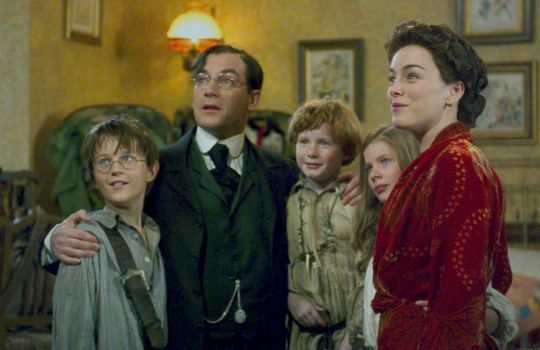
Peter Pan is an almost perfect adaptation. It matches the humour, the tone and the vision of J.M.Barrie. But I can certainly understand why the film didn’t do so well at the box office. In the month it was released, there was an unfair amount of competition, namely the film Lord of the Rings — The Return of the King. And as an adult, I can now understand why it’s not the film people think of or remember when it comes to Peter Pan adaptations. And it’s not just because it doesn’t fit the elfish, jolly trickster persona that Disney has created.
The film adaptation suffers more from what it doesn’t do — such as maintaining a stable tone and consistent editing — than from what it does. It’s one of those films that would have benefited from being much longer. And this is going off a point I've seen someone make in the past, that no Fantasy Film should be under two hours because of all the worldbuilding it has to introduce. That way, the inconsistent tone and some of the rushed parts of the adaptation would be much more balanced. It feels like it was missing an extra twenty minutes. For example, the film is narrated by an older version of Wendy, but without the deleted ending where it becomes properly clear that it’s her telling the story to tie everything together, the ending feels a little abrupt. Say what you will about Tim Burton’s adaptation of the Series of Unfortunate Events, but the audience could see where the film’s narration was coming from the whole time. I think if they knew the alternate ending wasn’t going to work (that scene is a classic example of something working well in the novel but not in the film), they should have removed the narrator altogether with the deleted ending and adjusted the film accordingly. They should have extended some scenes so that parts of the film weren’t rushed, such as the introduction, and the story would have been left more up to interpretation as there was no voiceover throughout.
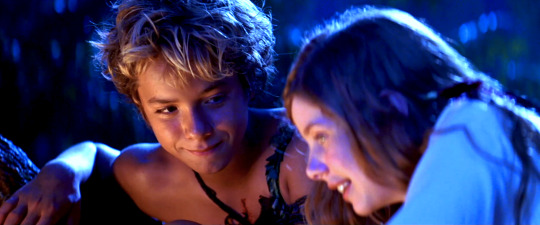
Despite its weaknesses, P.J.Hogan’s Peter Pan is still an underrated masterpiece 20 years later. It is an irresistible film that captivates and warms the heart. The film adaptation has certainly stood the test of time, staying true to the original while adding its own flavour to the story. It is full of magic, wonder and heart. It was clearly made by people who loved the origins of the story and explored where they came from, while also digging deep into the text to reshape the character arcs in a fresh and meaningful way. They succeed in capturing J.M.Barrie’s original message, which is that growing up is a natural progression of life, but that doesn’t mean leaving childhood behind entirely. That it is important to maintain a healthy balance between the two: Taking responsibility while appreciating the joys of life. From the vibrant colour palette to the goosebump-inducing music to the solid performances and gorgeous chemistry between Jeremy Sumpter and Rachel Hurd-Wood, my love for this adaptation will never end, no matter how old I am.
#peter pan#peter pan 2003#jason isaacs#jeremy sumpter#rachel hurd wood#peter and wendy#j.m barrie#peter x wendy#wendy darling#analysis#tinkerbell#captain hook#disney#peter pan and wendy#disney +#hook#James Newton Howard#olivia williams#novel#classic literature#filmmaking#film#cinema#culture#movie review#darling pan#finding neverland#film review#peter pan (2003)#peter pan live action
421 notes
·
View notes
Text
I remember when wicked was coming out, people were asking others to tag the spoilers, and some idiots were like "it is a movie based on a play that is 20+ years old, based on a book that is older - no i won't tag spoilers" and then i see people getting upset that people are asking them to tag nosferatu because it's also an 'old' text . and i just needs you guys to put on your thinking caps and understand that because of live action adaptations, people who would otherwise not be interested in these works/books/etc., are being pulled in and want to learn, and interact with this media. which is actually a good think !
so how do you think, being mean and snarky is going to impact people actually wanting to join and interact with these spaces. accept that not everyone has read nosferatu, accept that not everyone has seen/read wicked. someone asking you to tag spoilers for an adaption to a movie isn't hurting you. some people want the joy of experiencing and seeing things for the first time, especially if they're just dipping their toes into these genres.
two weeks ago there was the 'classics' discourse, of y'all calling people dumb for not knowing classics, and now when people are trying to learn about them, you're mean because they don't wanna be spoiled.
i talk about this on twitter all the time, but in fandom spaces, there really is an empathy crisis. especially in literature, classic and film spaces. and some of you guys are just mean.
#maybe it's because im 28 years old and when i was coming up in fandom spaces#people were legitimately nicer and kinder to others#now people are passive aggressive - entitled - pretentious and rude#and they'll be mean af and people will be gassing them up#i say this on twitter all the time - but people are really trying to live out their highschool mean girls era#nosferatu#nosferatu spoilers#noseferatu 2024#wicked#wicked movie#wicked 2024#galinda upland#elphaba thropp#wicked the movie#i hate mean people
64 notes
·
View notes
Text
My thoughts on the 2025 Smurfs movie trailer
After watching the 2025 Smurfs movie trailer, I’m feeling a mix of emotions—some excitement, but mostly disappointment. On the positive side, the animation itself looks decent. It has a vibrant, polished look that stays true to the Smurfs' classic design while taking advantage of modern technology. The blend of 2D-inspired textures with 3D animation is well done, and I appreciate that the characters still resemble Peyo’s original designs rather than the overly glossy look from the Smurfs live-action hybrids.
That said, the creative choices in this film already seem questionable. Bringing the Smurfs back to the human world again feels like a step backward. One of the biggest strengths of The Lost Village was that it kept the Smurfs in their medieval fantasy setting, allowing for a story that felt more in tune with the comics and original cartoon. But now, once again, the Smurfs are being dragged into modern society—probably for easy pop culture jokes and to cater to mainstream audiences who apparently can’t enjoy a fantasy film without a real-world connection. It just feels uninspired.
And then there’s the attempt to make the film overly trendy. The part with DJ Papa Smurf is downright cringeworthy. Who thought it was a good idea to turn the wise, fatherly leader of the Smurfs into some kind of hip-hop DJ? It just screams “trying too hard.” This is exactly the kind of thing that ruined other beloved franchises—shoehorning in modern slang, flashy neon aesthetics, and dance sequences that feel more like they belong in Trolls than in The Smurfs. It’s like they’re copying DreamWorks’ formula rather than embracing what makes the Smurfs unique.
And speaking of forced modern elements—Rihanna. Look, I respect Rihanna as a musician, and I’m sure she’ll do fine as Smurfette, but her presence already makes it feel like the studio is prioritizing star power over authenticity. And hearing her sing a pop cover of Heaven Is a Place on Earth in the trailer? That just doesn’t fit the Smurfs at all. In the Hanna-Barbera series, the Smurfs danced to classical music, folk tunes, or cheerful, whimsical melodies. Not radio pop hits. It makes me worried that the soundtrack is going to be full of chart-topping songs instead of anything that actually matches the Smurfs' traditional charm.
The introduction of Influencer Smurf is another point of contention. Many fans of The Lost Village have expressed their displeasure with this addition, and I have to agree with them. It feels like a contrived attempt at modernizing the timeless and classic Smurfs. Also, whoever heard of the internet in the Middle Ages? It didn't even exist yet. The Smurfs are supposed to be timeless, not the 2020s.
Furthermore, the Smurfs' unique language, where they replace various words with "smurf," has always been a charming aspect of their identity. However, in the 2025 trailer, this quirk seems overdone, especially when used to censor curse words. In the Hanna-Barbera series, this language was used sparingly, adding to its charm. But hearing "smurf" in nearly every sentence becomes tiring and feels like a forced attempt at humor.
According to fans of The Lost Village, the 2025 movie is nothing more than nostalgia bait. It seems the studio is banking on the Smurfs' legacy to draw audiences, without offering anything genuinely new or respectful to the original material.
I was hoping for a new Smurfs movie that embraced the heart of Peyo’s creation, not one that feels like it was designed by a marketing team trying to make the Smurfs “hip” again. Based on what I’ve seen in the trailer, I don’t think I’ll be watching this movie anytime soon.
And no offense to those who are hyped. I’m not bashing anyone who likes Smurfs 2025; it’s just my personal opinion. If others are excited for it, that’s totally fine! It’s just not what I was hoping for.
youtube
#the smurfs#smurfs 2025#unpopular opinion#paramount pictures#trailer#movie trailer#smurfs#peyo#2020s#personal thoughts#my thoughts#Youtube
47 notes
·
View notes
Text
A Moral Scapegoat for who?
All For One is a shit character, he is presented as a massive threat, but we never see him get a win, similar to the dissonance between the All Might we see and the context in universe.
And in the end, he becomes a moral scapegoat... for the heroes.
What is a moral scapegoat?
A moral scapegoat is (usually) a character used to excuse the actions of other characters or a system. Character A may have done XYZ but Character B was the one manipulating them and/ or is so much worse, so we can excuse A's actions. Or helping defeat B acts as pence for their past actions. Etc. And to a degree it makes sense, getting people to believe a character has changed and should now be considered good both by the characters and the audience is hard. So having some bigger bad to blame takes the pressure off the desired character(s).
While the term is typically only brought up negatively, like the use of Mary&Gary Sues, there are good ones. Commander Zhao in Avatar of the Last Airbender is an early moral scapegoat, used to say yeah Prince Zuko may suck, but there are a lot worse out there. My Little Pony Friendship is Magic has a moral scapegoat, right in the pilot, Nightmare Moon for Princess Luna, sure Nightmare came from Luna but it is presented as a curse, something that was cured, fixed. The Hobbit uses Dragon Sickness as a way to both corrupt and excuse King Thorin's actions when they have retaken the mountain; he is not in his right mind, and shouldn't be considered solely responsible for his actions
In certain ways, Pink Diamond (due to the audience learning her arc in reverse, when it has such an effect on the plot of Steven Universe) is a scapegoat for the remaining Diamonds, even though it makes a lot less sense for her to be the scapegoat when considering the actual sequence of events in universe. And while most people don't think Pink/Rose's actions excuse the Diamonds (especially White), she does work with Spinel. Another rocky moral scapegoat is Horad Prime from She-ra & The Princesses of Power, he is the big bad of the show and is meant to be a scapegoat primarily for Horadak who was the previous big bad, and mildly a scapegoat for Catra. The big problems with his sacrificial slaughter is that there isn't enough time to really settle in that this is the true big bad, and both Horadak and Catra's issues were both way more on screen and show up well before we ever hear of Hoard Prime, with them operating separately.
And All For One is a worst example of all of them (that I mentioned)
For starters the more we saw of him the less ultimate intimidating evil he portrayed, nor did we get a satisfying he was actually pretty pathetic. Really trying to have your cake and eat it too. Looking back he's very cartoonishly evil, but lacks the presence, he's boring. I've seen many good portrayals of him in the fandom, but canon is just boring. His background of miscellaneous evil deeds, don't really go into how they were evil, just that Yoichi (& AFO) clearly believes them to be, both come across as very childish to me, seeing the world as black & white.
He lacks the moral complexity of complex villains (like Magneto), meant to be an ambitiously evil man, whose evil for the sack of being evil. But he lacks the presence found in Classic evil Disney characters like Jafar, Clayton, and Ursala. In a way he's like King Magnifico (from Wish, the only recent hated animated Disney movie, that I agree deserves to be shat on), trying to have both but failing to capture either
In the present, he has little involvement on screen, and once he's out of the picture, Shigaraki (& the League) really bloom as villains and characters. The story could have had a slow realization (for Shigaraki, the League and the audience) that he was holding the League back, and that meant either he was nowhere near as competent as he was portrayed, or he wasn't actually helping Shigaraki, setting up for the body suit plan
But my biggest issue is who he's the sacrificial goat for.
And who is he the scapegoat for? The fucking Heroes and their shit-ass society, including the H PSC crap.
The ending reveal that he was behind everything that happened to Tenko, from him being born, his name, the kids he chose to play with, the issues with his quirk, and only having him; fails. It doesn't work! Mainly because of what that scene ignored the walk, and the complicity of the family. It ignored that the family were directly ignoring that Tenko was being abused, trying to placate him after the fact. It ignores that Kotaro Shimura chose to follow his friends advice, over his wife too. It ignores that even though AFO would have killed anyone who tried to help Tenko, no one tried. It also doesn't make sense either, normal kids are shit actors, not to mention Tenko was the one to reach out to them, not the other way around. And with the sheer amount of heroes, and cops, and regular citizens, how was it literally no one tried to help him, it's not AFO.
What else does it ignore, oh yeah, Tenko isn't truly unique in having a tragic backstory. Sure he was planning on taking advantage of the Endeavor's awful legacy plan, but we never see that AFO has done anything before kidnapping Touya. It's implied that he helped stroked Heteromorphic discrimination for his own gain, but that doesn't change that Spinner had pesticides thrown in his face, by 'innocent' civilians, that Shoji was mutilated as a child, for saving a child, by 'innocent' civilians, that the Ordinary Lady was attacked and denied shelter in the middle of an active warzone, by 'innocent' civilians. Himiko's abuse was enabled and furthered by quirk counselling, we don't even get a he was secretly to blame all along for this one. The commission has assassins, ignore. The homeless have to resort to villainy to survive, ignore. Once someone is considered out they are abused by this society until they have to lash out, ignore. The big bad was taken down, so nothing has to be done about these systemic issues, cause the heroes say so
There's a pattern, he was only able to do this, because the society he was in was already doing it.
And AFO being a moral scapegoat could of worked.
IF the Hero Public Safety Commission was similarly a scapegoat.
To begin, AFO should have been the scapegoat for the League, and the villains as a whole. The heroes would instead have the HPSC as their scapegoat.
Hawks should not have been made president of the totally different PSC, not only is he a known murderer, he doesn't regret it, he has never criticized the Commission's (or any other hero's) actions. If he's not going to see the issues, and hypocrisy right in front of him, he shouldn't have any role at all in it, and a very small one if he does recognize them. Giving this to Hawks screams nothing is actually going to be fixed, any changes are going to be for the worse.
Going into the final Deku vs Shigaraki battle, as well as the dreamscape crap, I had hope in this series. I thought that Deku would finally be forced to have the long over reality check of the Villains are right, what are you going to do about it. So instead of hyper-focusing on one tiny moment that with any and I do mean any additional context would show that it's not just this tiny shit moment. Rather than murdering Tomura for not abandoning the League (the same reason Hawks murdered Twice), have Deku convince Tomura that they can make a better society. That Deku's peaceful(ish) method is what's better for the League we have seen he loves.
From there they could have come up with a deal where either (these are simplified) everyone is held accountable for their past actions (as in the villains, Endeavor, Hawks, the Commission, everyone responsible for the sky coffin, etc). Or the clock is restarted, and everyone is hence forth held to the same standard. The villains are around to make sure the actual issues to their problems are dealt with, hint; Himiko's problem wasn't lack of access to quirk counselling. Happy satisfying ending for everyone
#bnha critical#bnha#bnha meta#mha#mha critical#anti endeavor#mha meta#my hero academia#boku no hero academia#anti enji todoroki#anti hero public safety commission#hpsc critical#shigaraki deserved better#horikoshi critical#hori is a bad writer#the league of villains#the league of villains deserved better
111 notes
·
View notes
Note
Do you possibly have a list of the G/t movies and/or shows? I've been looking for stuff to watch and would love to know what good stuff you've come across!
Okay so I've compiled a list from my poster and from more that have popped into my head as I wrote them down, fairly sure there's even more, but these are the ones I know well, if you know of any more please comment, I'd love to add to the list, there's actually so much out there when you really think about it!
Anyway enjoy and I hope I've listed at least some that you haven't seen before
Gt in media list:
Percey Jackson and the Lightning Theif (Literally a 3 minute scene toward the end of the movie but a great scene!)
Gulliver’s Travels (2011 Jack Black)
Gulliver’s Travels (1996 film)
Black Adam (The Atom smasher is a size shifter kinda like ant man)
Ant Man (Ant man and wasp, ant man quantomania, all three of these movies are great!)
Avengers Civil War (Airport scene)
Earths Mightiest Hero’s (Tv show featuring ant man and the wasp with great gt scenes)
Help! I shrunk my teacher (This movie is in another language however I have been able to find an English version pretty sure on YouTube)
Help! I shrunk my parents (Again in another language but should have English version on YouTube)
Help! I shrunk my friends (Now this one I haven’t been able to find with English version or English subtitles so if you find one please share, but visually even better than the other two in regards to gt!)
Tinkerbell and the great fairy rescue
Disney’s Thumbelina
Disney’s original animated Peter Pan as well as Return to Neverland (Tinkerbell gt scenes)
Ella Enchanted
The Borrowers (1973) A little old but super cute!
The Borrowers (1992) Pretty sure this is a mini series or at least 2 or 3 short films and it is great!
The Borrowers (1997) Classic movie, great visual effects, epic cast, amazing gt!
The Borrowers (2011) Another great remake of the movie, a little more modern
Alice in Wonderland – Whether it be the Disney animation or the Johnny Depp remakes, great gt scenes in this also, I personally like the live action remake
Hook – Oh my god is this movie great! Julia Roberts plays Tinkerbell and Robin Williams as an adult Peter, the chemistry and gt interactions in this are amazing!
Wiplala (Also known as Help! I shrunk the family though not from the same series of movies as the other Help! Movies I mentioned above) This is also found in a different language though English versions are available on youtube – Totally underrated movie and has amazing gt all the way through!
Barbie as Thumbelina (For a kids movie this has a super cute story and great gt enemies to friends vibes)
Jack the Giant slayer
Peter Pan (2003 live action) One of my favourites and I rewatch this a lot! Poor tink gets grabbed a lot sometimes gently and sometimes not so gently!
Honey I shrunk the kids
Honey we shrunk ourselves
Honey I blew up the kid
The Secret World of Arrietty (Another one of my all time favourites and rewatches!)
The Iron Giant (Again just amazing and one of my favourites!)
The Indian in the cupboard (So sweet with a lot of really powerful messages)
The Littles (Kids tv show and just all around great gt!)
The incredible shrinking woman (I personally didn’t enjoy this movie as much as I thought I would but still great gt scenes)
The incredible shrinking man (Again didn’t love this but it is also very old, great special effects for its time)
Fern Gully (Another all time favourite!)
Fern Gully 2 the magical rescue (Not as great as the first one but still pretty good as far as gt goes with more interactions with humans)
Epic! (one of the newer gt animations with a fantastic cast, didn’t like that the human’s move so slow but from a scientic viewpoint that does make sense)
Tom Thumb (This is fairly old and a musical, but has some excellent scenes for its time)
George shrinks (A kids tv show I grew up watching, all around amazing)
Jack and the beanstalk: The real story (Fantastic movie, though it may be a mini series, I can’t quiet remember but great gt again!)
Attack on Titan (this is an anime series, it’s also really good in the fact that one of the humans, well a few, but the main character can become a titan and helps to protect his city and his friends, now this show is not for the weak stomach, the titans are quite disturbing and there is a lot of vore and gore so fair warning)
Dinosaur (Disney movie – gt found family the tiny lemurs take in a dinosaur and raise him as their own, inspired my most recent story)
Transformers (There are many of these and can be hit and miss with regards to gt, but its there)
Sugar Apple Fairy Tale (Another anime, actually just started this and its fantastic in regards to gt)
Night at the museum (All three movies as they all include our favourite tiny cowboy and roman)
Robotech (I’ve been told this is great as it contains giant mech people and some gt scenes)
Land of the Giants (TV series, it’s fairly dated but well worth a watch)
Downsizing (Starring Matt Damon, I personally didn’t like this film, it had so much potential and just missed the mark but there is some great gt in it)
Monsters Vs Aliens! (I can’t believe I almost forgot this movie and it’s not in my gt media poster ahhhh! Amazing gt all the way through, one of my favourites!)
Dwarfina (Such a cute tv series, it is in another language but I was able to understand a fair bit, following the series on youtube can be confusing but it is so worth the effort, the story is so sweet with amazing gt and romance)
My little lover (A Japanese series, though I believe there is an english dub, I’ve heard there is a remake now out but I’ve not seen it, the original is fantastic though!)
Okay I’m gonna list a few more below, they all have the same sort of vibe, I didn’t personally enjoy them they were like on the cusp of pornography but for the sake of the gt in media list I’ll put them here:
Attack of the 50 foot cheerleader
Attack of the 50 foot woman (There is two of these, an older one and a remake)
Attack of the 60 foot centrefold
The 30 foot bride of candy rock
The Amazing colossal man
Village of the giants
79 notes
·
View notes
Text
A Turn as Trump Made Sebastian Stan an Unlikely Oscar Nominee
He is attracting different attention, and some leading man hardware, after standout performances in “The Apprentice” and “A Different Man.”
He is attracting different attention, and some leading man hardware, after standout performances in “The Apprentice” and “A Different Man.”
For years, it seemed fair to assume that the actor Sebastian Stan could make a career on both sides of Hollywood. There was dabbling in juicy supporting roles — he played the ex-husbands of both Tonya Harding and Pamela Anderson — while comfortably returning to the action-hero part for which he is best known: Bucky Barnes. As the erstwhile sidekick of Captain America, Stan has been a regular in the Marvel Cinematic Universe movies since 2011 (including “Thunderbolts*,” which hits theaters in May). There are surely worse fates than simply maintaining that balance.
“There’s a group of actors — I’ll put Colin Farrell in this group as well — that are so handsome that in some sense it works against them,” said Jessica Chastain, Stan’s friend and castmate in “The Martian” and “The 355.”
While being too good-looking a movie star may be world’s-smallest-violin territory, a whirlwind year with two standout unconventional performances now has the 42-year-old cast in a very different light. It has also already brought in some leading-man hardware, with more maybe to come.
In the surreal comedy “A Different Man,” an actor who has a condition that distorts his facial features has a medical procedure to make himself instead look classically attractive — specifically, to look like Sebastian Stan. Stan’s gutsy subversion of his looks won him the Silver Bear for leading performance at last year’s Berlin International Film Festival and the Golden Globe for acting in a comedy or musical last month.

Sebastian Stan, an Oscar nominee for his portrayal of President Trump in “The Apprentice,” called the movie “a fresh lens on him — but also on an American truth that doesn’t always get picked apart in this way.”Caroline Tompkins for The New York Times
The other movie, “The Apprentice,” is about a showy, morally questionable real estate mogul in 1970s and ’80s New York named Donald J. Trump. Stan plays Trump, his looks this time buried underneath both considerable physical makeup and all the figurative baggage viewers bring to the subject. From the movie’s premiere at the Cannes Film Festival last May, it was unclear if the film would find distribution and open in theaters, let alone be a part of awards season discussion.
But now Stan finds himself up for the Oscar in a lead acting role for playing the man who was re-elected weeks after the movie’s release, going up against four performers who have received Oscar nominations before: Adrien Brody (“The Brutalist”), Timothée Chalamet (“A Complete Unknown”), Colman Domingo (“Sing Sing”) and Ralph Fiennes (“Conclave”).
“A well-crafted character built from rage and years of suppression,” is how Stan described his character in an interview last week in Manhattan. “I would argue that even though I’m sure he’s seen the movie, maybe a few times — I have no idea by the way, this is me totally speculating — one of the issues he’s probably had with the film is it really shows you the opportunistic evolution of this person.”
After the Cannes premiere, Trump, through a spokesman, pledged to sue the filmmakers and called the movie “pure fiction” and defamatory. (Trump has not sued.)

“What I’ve always seen in his journey, and certainly what we were exploring in the film,” Stan said of “The Apprentice,” “was the solidifying of a person into stone, the loss of humanity.”Scythia Films
Major studios and streaming services, from A24 and Searchlight to Netflix and Amazon, all passed. Even after “The Apprentice” was picked up by Briarcliff Entertainment and eventually made available on platforms like Apple TV+, Amazon and YouTube, the controversy surrounding it didn’t fully subside.
The trade magazine Variety could not place Stan in its prominent “Actors on Actors” series, in which acclaimed performers interview each other during awards season, because other actors “didn’t want to talk about Donald Trump,” Variety’s co-editor in chief Ramin Setoodeh confirmed in a statement.
“I found it distressing that the business of Hollywood didn’t have the courage to support this movie,” said Stan’s “The Apprentice” co-star Jeremy Strong, who is up for best supporting actor for playing Trump’s mentor, the attorney Roy Cohn. “And I found it incredibly heartening that the community of artists and the creatives in Hollywood have acknowledged” the film with Oscar nominations.
The Trump of the first half of the movie might surprise viewers used to the 2025 version: an outer-borough scion, ambitious but unsure, who bristles under his despotic father, aspires to greater recognition and bets big on the revival of Midtown Manhattan during its 1970s nadir.

“To some extent I thrive on fear, on being told I can’t do it,” Stan said.Caroline Tompkins for The New York Times
The early Trump, whom Stan encountered in hours and hours of television interviews and documentaries he consumed while preparing for the role, really was rather different than the man who has dominated our national life for the last decade, Stan argued. “There is a dreamer there,” he said. “There is some idealism about America and New York and what it could be.”
As the ’70s turns to the 1980s, the movie’s Trump becomes far less sympathetic. Having disburdened himself of his need for a connected father-figure, he betrays Cohn, a gay man dying of AIDS. He rapes his wife, Ivana (who detailed an assault by Trump under oath but later clarified, “I do not want my words to be interpreted in a literal or criminal sense”).
“What I’ve always seen in his journey, and certainly what we were exploring in the film,” Stan added, “was the solidifying of a person into stone, the loss of humanity.”
When Stan received the offer to play Trump three years ago, he had already branched out beyond Bucky Barnes with the roles of Jeff Gillooly, the ex-husband to Tonya Harding who plotted the violent attack on Nancy Kerrigan, in “I, Tonya,” and Tommy Lee, of Mötley Crüe and sex-tape fame, in the Hulu limited series “Pam & Tommy” — in other words, real people who dominated tabloid pages in the 1990s (and probably shared a few with Trump).
“The Marvel of it all,” Stan said, has contributed to his willingness to take on riskier roles. Bucky Barnes “allowed me to, one, have the opportunity to survive,” he explained. “But coming back to that character over time and getting to do certain things with that character allowed me to look for its core opposite.”
Even so, he said he took seriously the several people he polled for advice — a studio executive, a casting director — who advised him to say no to playing Trump. But ultimately he accepted the part, betting on artistic growth.
“He was scared,” said Chastain, who was on set with him for “The 355” when the offer came. “I said, ‘If you’re scared, you have to do it.’”
A certain defiance crept in as well. “To some extent I thrive on fear, on being told I can’t do it,” Stan said. “Probably not unlike him!”

Until recently, Stan was best known as Bucky Barnes in Marvel movies. “The Marvel of it all,” he said, has contributed to his willingness to take on riskier roles.Caroline Tompkins for The New York Times
As Stan studied Trump, he found more common ground.
“I think everything he does is about power,” Stan said. “There were a lot of times growing up where I felt very powerless over my life.”
Stan was born in 1982 in Romania, then ruled by the Communist dictator Nicolae Ceausescu. His parents split up, and his father immigrated to California. His mother, a pianist, moved to Vienna to play and teach following Romania’s revolution in 1989. For more than a year, Stan was primarily cared for by grandparents. Then he joined his mother in Vienna, where he struggled to learn German and English.
“This Communist mentality of, ‘Don’t talk about anything, maybe they’re listening at the phone,’ was something I even felt in Vienna,” he said.
He transferred to an international school where his future stepfather was headmaster. The family eventually moved to New York.
Stan’s background was something Ali Abbasi, the Iranian filmmaker based in Denmark who directed “The Apprentice,” identified as resonant with the role of Trump, Stan said.

“Immigrants in this country are some of the most patriotic,” said Stan, who was born in Romania. “My father, when he came here, he loved America. He loved the ’80s. He loved Ronald Reagan.”Caroline Tompkins for The New York Times
“I understood something about the script, about this person who was so desperate to get up there that he was not going to stop at anything,” Stan said.
Beyond the profundities of Trump’s motivations, Stan also set out to master the basics — the stare, the accent, the walk, the rhythm. The goal was not to do the most precise impression so much as to feel comfortable enough to forget about doing all the tics and instead live in (and improvise as) the character.
“He did such a deep dive and became a forensic detective,” said Strong, “tirelessly absorbing, observing, studying, internalizing everything he possibly could, to the point that you sort of graft it onto yourself, as if it’s a second skin, and you tip over into it.”
Stan watched many a TV interview (and there are many) on his iPad or listened through an earbud while going about his day — driving, shopping, brushing his teeth, he said. Trump’s superficialities at times led Stan back to the deeper character. “One of the things I realized was that he doesn’t breathe — it’s in the throat, it doesn’t really get into the stomach,” Stan said. At this point the obvious movie star with black hair and impressive stubble, sipping coffee quietly in a fashionable hotel lobby in white wool sweater and jeans, briefly transformed into you-know-who. “It’s more up here,” he continued. “Which is why he’s also walking the way he does — because, if you see, his posture is sort of jagged. But if you’re not breathing and you’re not in your body, you have also to think about what that does emotionally.”
“Emotionally” might be the crux of it — where an immigrant from Eastern Europe identifying with a man whose main migration was to traverse the East River from Queens to Manhattan came to see himself as different.
“Immigrants in this country are some of the most patriotic,” Stan said. “My father, when he came here, he loved America. He loved the ’80s. He loved Ronald Reagan.”
Trump, Stan argued, represents a curdling of the same American dream to which immigrants such as himself were attracted. “When you’re looking at the Trump mentality — that something terribly wrong has been done to me, and I have to overcome anything that feels weak, and generosity is actually transactional — we value people that succeed in that way in this country,” he said.
“The Apprentice,” Stan said, “was a fresh lens on him — but also on an American truth that doesn’t always get picked apart in this way.”
#Sebastian Stan#New York Times#Photoshoot#The Apprentice#A Different Man#mrs-stans#StansClan#SStan#SebStan#sebastianstansource#sebastian stan source#sebastiansource#sebastianstannews#sebastianstanedit#sebstanedit#sebastianstan
43 notes
·
View notes
Text
I am 15% of the way through Harrow the Ninth. There are no plot spoilers below.
"Second person, past tense" is a really weird choice for a novel's narration, and I will be disappointed if this does not pay off mightily.
Most pieces I see in second person POV are short stories. The goal is to establish intimacy and immediacy, and they are most commonly in the present tense. The notion is that the action is happening to you, right now, and you are finding out about it as you the reader go through the story. Occasionally you see such a story in the future tense, suggesting someone is prophesying to you.
Second person, past tense is someone telling you your own history. This is kind of weird. One assumes a Memento story with an amnesia premise, or similarly Merlin living backwards in time. The second person here raises the question of who is telling you the story. The past tense raise the question of why you need someone to tell you your own story.
That our protagonist is explicitly and demonstrably insane gives us a lot of "why," although the particular "why" depends on the "who." The most obvious "who" is that Harrow is telling herself her own story. We have already seen Harrow telling herself her own story within this story, so adding another layer of recursion seems obvious and later adding multiple seems fun.
But here we reach a fork that we cannot resolve this early in the book. Is Harrow in a moment of lucidity telling herself what she should already know? Is Harrow in a moment of insanity hallucinating a new history? Is Harrow just lying to herself because the ending of Gideon the Ninth was too painful?
Harrow the Ninth is sometimes described as gaslighting the reader about Gideon the Ninth. Someone is not telling the truth about something here. One character seems to have noticed, but it is hard to be sure when our narrator is unreliable and may be hallucinating and/or lying.
Gideon was a somewhat unreliable narrator not in the sense that she lied (except perhaps about her emotions, except perhaps mostly to herself) but in that she was not paying attention, like the meme post in circulation about a movie showing the start of World War I from the perspective of a pet pigeon. You can probably identify all the important plot points of Gideon the Ninth by how boring Gideon finds them.
Harrow is more classically unreliable. She has a skewed perspective, and within that perspective she hallucinates, and on top of those hallucinations she will deceive herself and others. This early in the book, we already have many examples of Harrow seeing things that aren't there. She tends to realize within a page or two that she is hallucinating. The big news at some point should be that those little hallucinations were within the context of a larger hallucination and/or lie.
And now I need to go finish the book so I can check my Tumblr notifications without worrying about spoilers in the notes.
900 notes
·
View notes
Note
Do you think Hideaki Anno is right-wing or is it too difficult to tell from his works?
Haha that's a question.
I'll focus on nationalism rather than trying to get into, say, gender politics here, since that's the accusation that most seems to follow Anno around.
Anno's politics are... hard to pin down from his work alone, I think. He's like... a prototypical case of that generation of 'apolitical' otaku that followed after the Anpo generation, with Eva pretty much the definitive statement of the 90s psychological turn. But that said... I can definitely see the argument that there are nationalist themes in some of his works like Gunbuster, though I definitely don't buy every reading in this series (lots of dubious kanji reading). He definitely has that otaku fascination with war machinery and war media (apparently he's a big fan of The Battle for Okinawa and watched it over 100 times), which can easily blend into imperialist ideology.
But there's complications here. For example, the Animekritik series cites the setting of Gunbuster in Okinawa as something formative to the nationalist ideology they are trying to illustrate - in part in relation to the ongoing controversy over American military bases in Okinawa. Anno has at least been on record as saying he's disinterested in Western culture, and I can see the reading of Jung-Freud as an external Other who is shown up by the Japanese girls, somehow simultaneously representing the USSR, Europe and the States. But anti-Americanism in Japan can come in both left and right wing flavours (c.f. Anpo). Communists want the Americans out too! Portraying Okinawa as a military training camp in a Japan-led military coalition certainly comes across as a more nationalist take on that whole matter, but I feel like it's got about the same level of serious nationalist commitment as Doctor Who putting random British people all over space.
When Gainax has played around with nationalist imagery it's usually been in a kind of ironic sendup way - see Ash's writeup about the Aikoku Sentai Dai Nippon controversy, in which Daicon Film staff were disdainful at the accusation that their goofy toku film reflected a genuine nationalist sentiment. While Imaishi takes it further, a lot of Anno's work is also about playfully reappropriating past works. In Anno's case a lot of that is classic tokusatsu, Ultraman in particular, and also Leiji Matsumoto's scifi, notably Space Battleship Yamato, which, well... you know the deal there lol. But it's not so simple to go from that to 'Anno is a nationalist'.
Eva doesn't tend to attract these accusations, but I recall the controversy came back around with Shin Godzilla, though to my mind it's hard to find a straightforwardly nationalist reading of that movie. (It's a film about the experience of the earthquake and Fukushima nuclear plant meltdown, and it's critical of Japan's bureaucracy, but equally one where the JSDF repeatedly get their shit handed to them and civilian infrastructure is what actually stops Godzilla - not to mention Godzilla is painted as quite a tragic figure here!) It all feels pretty tenuous.
I haven't seen as many of Anno's live action films as I'd like, so I can't comment as much on the more recent Shin films, Love & Pop, Shiki-Jitsu etc. And it's always possible for subtler allusions to slip by the anglophone viewer. Still, I don't personally think Anno's post-Gunbuster work is particularly nationalist in outlook. I certainly haven't seen any evidence of him favouring, say, war crime denial, anti-Korean sentiment, remilitarisation, etc etc. - he's definitely not as dubious a figure as someone like Hajime Isayama. But it's not like, anti-nationalist either! It's just kind of hard to read in those terms.
So I lean towards your second option, I'm not convinced he's a nationalist or particularly right wing. He happily associates with Hayao Miyazaki, who's definitely not a right wing guy. But Anno'll also let hilariously cooked stuff like whatever On A Gloomy Night was supposed to be into the Animator Expo. So I don't think he's particularly left wing either, he's no Ikuni! But Anno's fiction is very individual focused, full of psychoanalytic themes and internal conflict. He can vividly portray trauma and complex power dynamics. There's a lot to appreciate in works like Eva from a left-wing angle. I don't really know why this association of nationalism follows him around.
Idk, maybe there's a bunch of interviews I'm missing! Presumably you have a reason for asking this question...
145 notes
·
View notes
Text
Nosferatu (2024)

Ok. So Robert Eggers has either just made the ultimate monsterfucker film OR the ultimate criticism of that genre. Not all monsterfucker films are created the same, but I think it's safe to say that the majority of them strongly romanticize the human/monster relationship to make it erotic and appealing to a mainstream audience. But no beautiful, sparkly, eternally young and fashionable creatures inhabit this film.

Oh no, on the contrary, only a waxy, twisted corpse with reflective, demonic eyes stalks the protagonists from the shadows. It most resembles a giant, undulating leech while in naked, monstrous action, and in most other shots, it can only be dimly perceived as a hulking, disfigured form with elongated features covered in fur. Unlike every other version of Count Orlok, we never see his full face or the trademark, rat-like fangs, but their presence is definitely felt through the gruesome sounds he makes while feeding and the diseased marks he leaves on his prey. This Orlok is definitely animalistic in every sense of the word, an amalgamation of rat, bat, and wolf. He's a literal plague. Bill Skarsgaard pulls off a miracle of acting by disappearing completely and creating a completely unearthly performance behind his impressive makeup with an equally impressive voice that sounds as large and demonic as he looks. He's also sexual, but in a completely unnerving way. More animal than human, desperate and violent.

Lily Rose Depp has impressed me in the past, but she's surpassed herself here. She's fearless and transcendent, throwing her whole body and soul into her portayal of a solemn, pale waif of a heroine. Her character is fragile and pure and yet also spiritually powerful, drawing the darkness to her with her own insatiability.
And guys, let me just again point out that it's been a pretty amazing era of women in horror for the last several years. We've got legends in the making like Lily Rose Depp, Florence Pugh, Maika Monroe, Margaret Qualley, Sophie Thatcher, and many other young female actors making serious waves in this genre, not to mention all the women filmmakers working in horror.
But I digress.

What Eggers and his top tier cast of performers achieves here is almost the final, definitive word on the classic vampire tale of a monster stalking a girl from leagues of time and space away. It removes the modern stylization and sexiness we're used to from films like Coppola's Dracula, and breaks the story down to Reason vs superstition, the seen vs the unseen.
I love the sense of authentic folklore Eggers gives to his creatures, and it feels especially rich and historically accurate here. As always, Eggers is spotlighting the fears and concerns of a specific place and time from the past. 19th century Germany has many great scientific advances being made in it, and yet bubonic plague is still very much a concern, bringing along with it ancient, primal fears and beliefs. The lesson of the Dracula/Nosferatu story has always been that we modern folk neglect spiritual matters and scoff at superstition to our own peril, and the stubbornness of rational men pretty much dooms everyone in the cast in this version.
But make no mistake, there's still definitely erotic elements in this film, they're just more brutal and terrifying than titillating. You're not going to see Gary Oldman as a wolf creature humping a girl in a red fringe corset nightie here, is what I'm saying. In fact, this vampire might be the most nasty, corpsey one I've ever seen. Necrophilia is a recurring theme here, as well as many orgasmic fits of possession. Bodies are violated repeatedly and in various ways. The final, naked shot of the film inspired uncomfortable laughter from a woman in my audience because of how grotesque a tableau it was. So how much this turns you on will depend on how hardcore you are into the monster thing.
It's a movie that sticks with you, even if you're not sure if it's hot or horrific. I give it 10 screaming demonic fits out of 10.
#nosferatu#robert eggers#lily rose depp#bill skarsgård#willem dafoe#aaron taylor johnson#emma corrin
49 notes
·
View notes
Note
When you pointed out the green lighting in the climax scene, it reminded me of how it seems like people who watched the Mario movie seem to think that it's either some barebones mediocre flick, or it's a cinematic masterpiece and I don't see a whole lot of inbetween. Partly because of your posts I'm finding new things to appreciate it with more with all those clever cinematography things that I never even noticed.
This movie deserves more credit honestly. I never understood why people think the plot was super thin when I'd say the story is at least on par with (and exceeds in some respects) the stories that Mario RPGs have.
In all fairness, the entertainment value of an RPG is based partly on gameplay, while in a movie the experience relies way more on the story and characters. It's easier for an RPG to get away with a thin plot than a movie.
The thing about many modern critics is they tend to focus on a desire to be challenged in some way; presented with novel ideas, unexpected twists, or new takes on classic tropes, but The Mario Movie doesn't really focus on that.
It gives you just enough information to connect with the characters, then proceeds to put all its focus on cinematically recreating the emotions you feel while playing a Mario game: exploration and discovery, fun/bouncy movement, fast paced action, and as much silliness as one can get away with without ruining a sense of stakes.

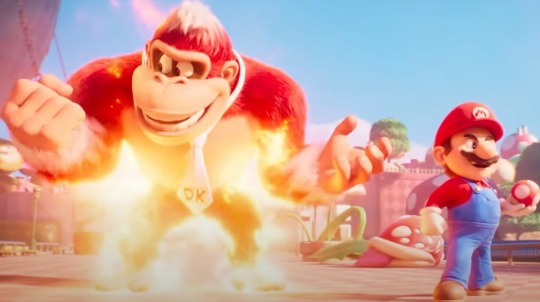

The movie pulled it off about as well as it possibly could, which is why it was such a big hit with its target audience.
Now, there are some things in The Mario Movie that are extremely unique. For instance, adult brothers who are intensely (yet healthily) attached to and protective of each other as the central focus? Not something I can say I've ever seen before.

And... this may not be a positive for everyone... but the main male and female protagonist growing closer over the course of the story but never really establishing a relationship beyond mutual respect? Given how almost every other animated movie I've seen that isn't a Miyazaki film has to force a romance by the end of its runtime, Mario and Peach's relationship was a huge a breath of fresh air.
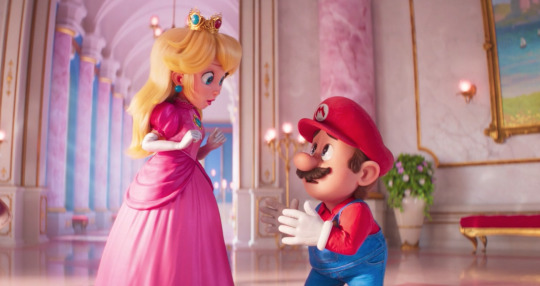
But if neither of these dynamics grab your attention it's pretty easy to see the movie as nothing more than a silly romp with straightforward characters and a simple story.
But even as a silly little romp a lot of love and care went into the set pieces, the worlds, and the way the characters move and interact, as well as all the tiny background details and easter eggs. Say what you will about Illumination, but it is a company with extremely skilled animators and designers in its ranks.
So while the end result is nothing ground breaking, The Super Mario Bros. Movie is what it set out to be: just fun. Likable characters, funny jokes, beautiful visuals, and just a general good time.
60 notes
·
View notes
Text
Twisted Wonderland Dorm Leaders connections to Disney protagonists
Recently I saw a post about how the housewardens have aspects of not only their villains, but their heroes too.
I’ve thought this too for a long time and just wanted to ramble and elaborate my thoughts on them.
Riddle has the Queen of Hearts Irrationally, discipline and sternness. But he also has Alice's curiosity, her stubbornness to give up (a good and bad thing) and her innocence. He also parallels the way it is implied that adults do not take Alice’s concerns/ feelings into consideration.
Leona has Scar's apathetic nature, his underhandedness, calculating personality. But I've always thought of his laziness, his need to run away from his duties more of a reflection on Simba and the way he avoided his past trauma for so long. Leona also has pride; a trait that is reflected in a negative light in Scar and a positive side for Simba.
Azul has Ursala's greediness, her fake charm, and her cut throat business attitude. But he also has Ariel's love for learning new things, the feeling as if they don’t belong in their own skin, the desire to change who they are to get the life they want; or perhaps be the person they always wanted to be.
Jamil is interesting. He shares Jafar’s lust for power, position, and to be seen as better than all others; as well as his two faced nature. But he and Kalim almost share the protagonist's traits. While Kalim gets Jasmine/The Sultans privilege, naivety, and optimism about people and the outside world; he also gets Alladin’s kindness. Whereas Jamil shares Jasmine’s and Genie’s desire for freedom. Free from duties, free from their bounds of their respective roles.
Vil is a little difficult, because of the existence of Neige, he doesn’t quite share many qualities with Snow White. Interestingly enough he seems to be the most separated from his protagonist: counterpart. I could almost argue he shares traits with the 7 dwarfs. While, he is obsessed with being “the fairest of them all”, vain, and can be jealous, and pompous. One cannot deny that he is a multifaceted character and a hard worker. If I did have to give a trait from Snow White to Vil it would be the standards of self care she holds herself and the 7 dwarfs too. Despite all his flaws, Vil is very caring to his loved ones and even nurturing, making them do what’s best for them, even if they don’t like or understand it; much like Snow White is to the Dwarfs.
Idia shares a lot of traits with Hercules and Meg. His personality is one that is pretty different from his Great 7 counterpart, at least on the surface.
While he has Hades gloom and doom; anger and apathy over his lot in life, his intelligence for strategy, lack of empathy and sympathy for others. As well as the willingness to manipulate people so that he can “win”. Idia also shares Hercules desire to fit in, to belong, to be a hero to the people he cares about. He shares both Hercules and Meg's willingness to do anything for the people they love; to the point of self harm. And he share’s Megs, Hercules, and Hades desire to escape a fate in life they feel they don’t deserve. Most importantly, which I feel a lot of people overlook. Hercules desires to be normal (at least in the beginning of the movie.)
Malleus is also interesting, I suspect his story wasn’t solely influenced by the Disney Sleeping Beauty classic, but also the live action Maleficent movie. Which makes Maleficent the protagonist and recontextualized her lore and character. Making her the new protagonist. In this way it’s very clear how Malleus is both the antagonist and protagonist. But to stay true to the original animated films I’ll just focus on that. It’s very obvious how Malleus is similar to Maleficent. He can be petty, place himself above others, unempathetic, quick to anger/frustration. But like Aurora he is very sheltered from the rest of the world, he longs for connection with other people and wishes not to be known just for his title, but the person he is.
This connection to the protagonist is what makes the twist characters a Twist on the villains. The idea that villains and heroes are partially both victims of circumstances and if things were different maybe one or the other would be labeled a “hero” or “villain”. I really appreciate the much more gray-scale approach they took; and what that could mean once you really dive into the lore, history, and worldbuilding they're doing.
Though that's mostly hc stuff for now.
Anyway this is a bit rambling but I just wanted to get my thoughts out there.
#twisted wonderland#disney twisted wonderland#myrambles#disney twst#twst wonderland#character discussion
84 notes
·
View notes
Text
Karma Akabane Hcs + <Random>
(Re-do)

Most likely to Get out of his bed late eventhough he's been awake for hours.
Whenever his parents go home once a year he feels rather uncomfortable around them or strange.
He reads, Be it Comics or Novels, he'd definitely like thriller, Action, Sci-fi and might also like found-family trope (He's coping).
Listens to classical music secretly
He finds horror movies illogical, would definitely call the characters dumb during a suspenseful scene.
He doesn't show his anger, He could be angry but still act like his usual self and you'll never know he was, he'd definitely release his anger out on guys who lurks the dark alleyways with dark intents.
Considered as a dark knight like batman or diluc by some women.
Definitely had saved a plenty amount of people from getting harmed at night.
He's a night owl and wakes up early (His sleep schedule is unhealthy)
He draws, you've seen the drawing he made of korosensei in the sequel movie right?
His room is tidy and Almost unfitting of his personality, his bedroom has shelves with tons of books in it, some figurines, a pc setup and all that shiz.
Many scars on his hands and arms, you can't fight without getting a few cuts obvi
Random : Karma's eyes doesn't have any sparkle or shine like the others do, and in anime logic, those who don't have shine on their eyes are either depressed or dead inside :(
He likes any desserts that has strawberries
Fond of kids, he'd be approached by a pre-schooler and he'd immediately become a big brother figure.
Him and Kayano have a sibling-like bond, kayano as a little sister to him and him being kayano's big brother even though he's younger by months.
Career over love
Not that sporty, He's a nerd who knows a few sports and that's that.

I remade my old hc post, the old post wasn't that old but it's still an old post.
#akabane karma#ansatsu kyoushitsu#assassination classroom#anime headcanons#assclass#headcanon#karma akabane#karma akabane x reader#x reader#akabane karma x reader#hcs#my hcs#@severelynsomniac
310 notes
·
View notes